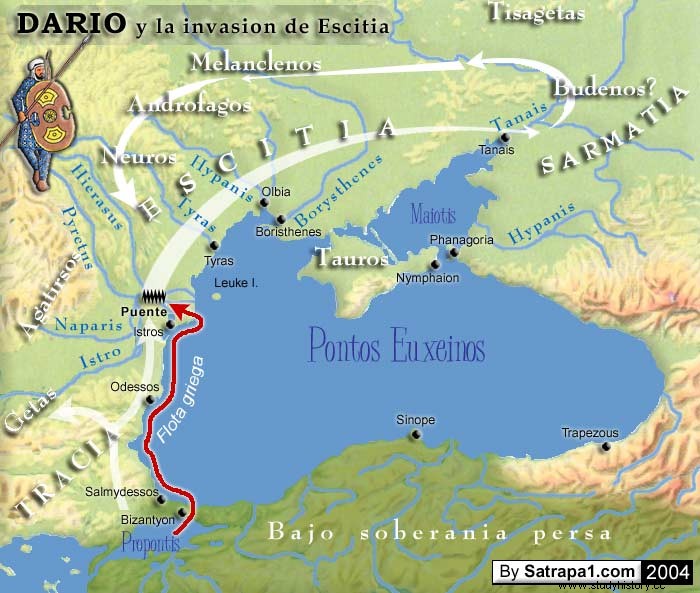The Medical Wars were a series of conflicts between the Achaemenid Empire of Persia and the city-states of the Hellenic world that began in 499 BC. and extended until 449 BC, and whose starting signal was a tattoo on the head .

Medical Wars
Darius I the Great was the third king of the Achaemenid dynasty of Persia from 521 to 486 BC, inherited the Persian Empire at its zenith, which then included Egypt, the northern Indian subcontinent, and parts of Greece but the Scythians , nomads who occupied the Eurasian region from the Danube to the northern shores of the Black Sea, still remained a threat on the northern frontier. So, he built a bridge to cross the Istros river. (Danube) and planted in Scythia with a mighty army. Faced with manifest numerical inferiority, the Scythians avoided facing the Persians directly and played cat and mouse with them. . Darío, tired of that strategy, decided to withdraw…. but the Greeks had decided to destroy the bridge and cut off the Persians. Only the intervention of Histieo , tyrant of Miletus, prevented it. Not out of sympathy with the Persians but because they weren't ready to face them yet.

As a token of appreciation, Darius took Histieus as his personal adviser. Histieo knew that he could not refuse but he managed to get Darius to appoint Aristagoras , a relative of his, the new tyrant of Miletus. He gained the trust of the Persian king by fulfilling his role to perfection and, in addition, it served him to know the weaknesses of his enemy. When the time came to take up arms against the Persians, Histieus had to communicate with Aristagoras but how to do it without the message being intercepted?
he shaved the head of a slave and tattooed the message:
Histio to Aristagoras:Ionia revolts
When the slave's hair grew so that the message was hidden he sent it to Miletus... it was time. Aristagoras, after shaving his head again and reading the message, went to Sparta and Athens to join the Greek cause but only Athens accepted. Miletus and Athens had begun the hostilities that would lead to the Medicine Wars .
